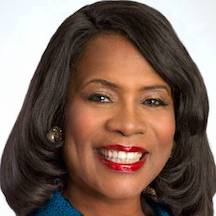 Tennessee State University President Glenda Glover announced that she will retire following the 2023-2024 academic year. She became president in January 2013.
Tennessee State University President Glenda Glover announced that she will retire following the 2023-2024 academic year. She became president in January 2013.
“It was a decision that did not come too easily,” President Glover said, “and it was not made lightly. My voice is needed now on a more national platform.” She did not indicate her plans after she steps down. But in 2022, Dr. Glover was appointed to serve as vice chair of the President’s Board of Advisors on Historically Black Colleges and Universities.
“Serving as President of Tennessee State University has been the honor of a lifetime,” Dr. Glover said in her announcement to the campus community. “Words cannot express the emotions I have as I stand before you this morning. TSU prepared me for every accomplishment I have achieved throughout my career. This is where I got my start, where the seeds of excellence were sown for a young teenager from south Memphis who aspired to change the world.”
“Dr. Glenda Baskin Glover serves her alma mater with tenacity,” said Charles Galbreath, president of the Tennessee State University National Alumni Association. “For over a decade, Dr. Glover has successfully positioned, protected, and promoted Tennessee State University on international platforms. I am encouraged to see a daughter of the civil rights movement wield the wisdom and power of that era, fighting the good fight for today’s injustices. I admire Dr. Glover’s grace under pressure and her humility when praised. Dr. Glenda Glover is a global trailblazer, and her influence will live for generations to come at our beloved alma mater.”
Dr. Glover is a certified public accountant. In addition to her bachelor’s degree in mathematics from Tennessee State University, Dr. Glover holds a law degree from Georgetown University, an MBA from Clark Atlanta University, and a Ph.D. in business economics and policy from George Washington University.


The facts remain, Dr. Glenda Glover was consistently undermined in various ways by a cabal of insecure so-called Black men and especially a few racist White male elected officials in Tennessee. This is nothing but another glaring example how HBCUs have both internal and external threats which impedes their forward advancement. Not to mention HBCU Boards of Trustees wonder why very talented native born Black Americans are hesitant to work at HBCUs as the titular head.
If it were up to me, I wouldn’t hire anyone to be the president/chancellor of any HBCU if they hold membership to one of those so-called Black Greek organizations (i.e., Boule, PHFAM, OES, etc.) and that’s the sum total of their DAMN identity. HBCUs need substantive results on all fronts and just “group membership”.
Wow! I remember learning about ALLL this amazing WO-man was doing and trying to put in place while watching Roland Martin Unfiltered. It was abysmal to hear her being questioned by white politicians and seemingly seeking to discredit her. Congratulations on your NEXT Dr. Glover! @HBCU Watch – your statement is why I am releasing my dissertation in book form Jan 2024- The Whiteness of Akkkademia and the Making of a Slave…it speaks about the white supremacist and the white supremacist in Black Face on these plantations. Sick of it!!
Hey Angel,
I must admit, I am very pleased that my statement in some small way is propelling you to publish your work that will hopefully awaken the collective native born Black American community on the realities we face daily. In fact, academia in many cases, is more hostile towards Black women and men than the typical blue collar job.
On the academic note, for your dissertation are using a qualitative, quantitative, or mixed-methods research design? I look forward in reading your book. Keep up the great work.
I agree and it is one reason why I have not pursued working at an HBCU. When I did try I was overlooked, although I have excellent credentials, because I did not go to an HBCU, I was not a “black Greek,” did not participate in “Jack and Jill,” and had a research background, publications, and outstanding teaching evaluations. None of that seemed to matter. When I saw the final choices I realized, along with the help of a good recruiter that being at an HBCU would be toxic for me. That is so sad, because I have a lot to offer, I just do it for the few Black students I find at the TWI where I have worked.